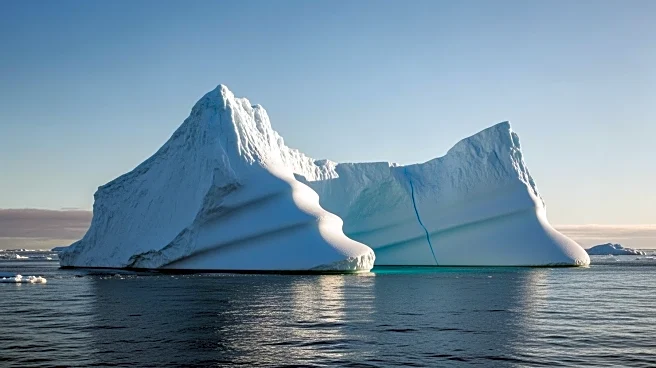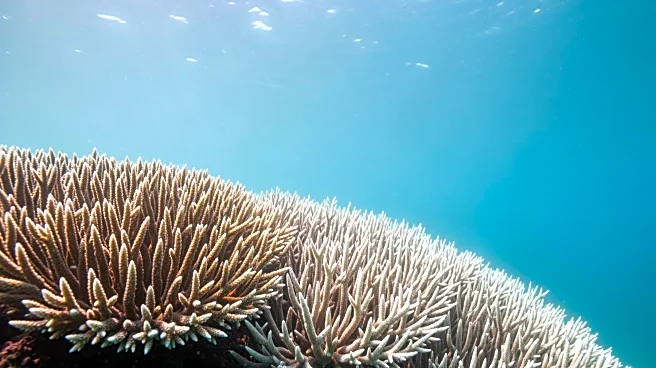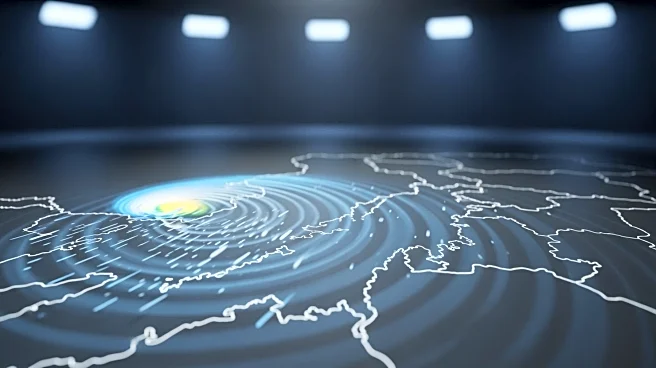What's Happening?
New research published in Nature by scientists from The Australian National University and the University of New South Wales highlights the potential for sudden and irreversible changes in Antarctica's ice, oceans, and ecosystems. The study identifies
the West Antarctic Ice Sheet as being at extreme risk of collapse due to rising atmospheric carbon dioxide levels. Such a collapse could raise global sea levels by over three meters, posing a threat to coastal populations worldwide. The research also points to a sharp decline in Antarctic sea ice, which exacerbates warming by allowing more solar heat to be absorbed by the ocean. These changes are interlinked and intensify global pressure on climate systems, sea levels, and ecosystems.
Why It's Important?
The potential collapse of the West Antarctic Ice Sheet and the decline in sea ice have significant implications for global sea levels and climate patterns. Coastal communities, particularly in Australia, face increased risks from rising sea levels. The warming and deoxygenation of the Southern Ocean could reduce its capacity to absorb carbon dioxide, leading to more intense global warming. Additionally, Antarctic wildlife, including emperor penguins and krill, are at risk due to habitat loss and changing ecosystems. The study underscores the urgent need for global action to reduce greenhouse gas emissions and mitigate these impacts.
What's Next?
The study calls for urgent global efforts to reduce greenhouse gas emissions to limit global warming to 1.5 degrees Celsius. Governments, industries, and communities must incorporate these findings into climate adaptation planning. The research is part of a broader initiative to understand and address changes in Antarctica, involving collaboration among experts from multiple countries. Continued monitoring and research are essential to track these changes and inform policy decisions.
Beyond the Headlines
The study highlights the interconnectedness of Antarctic changes with global climate systems, emphasizing the need for comprehensive international cooperation. The potential collapse of Antarctic overturning circulation could disrupt marine ecosystems by preventing nutrient distribution, affecting the global food web. The findings also stress the importance of the Antarctic Treaty System in managing these changes, although it alone is insufficient to prevent climate-related impacts.
















